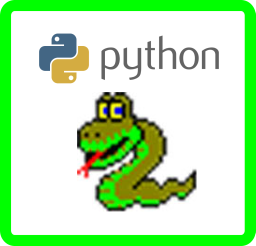 |
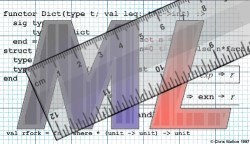 |
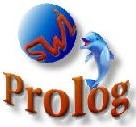 |
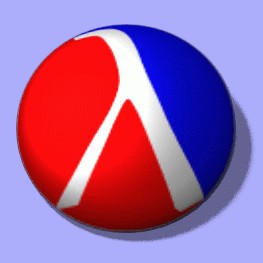 |
 |
|||||||
Synopsis
This course is an introduction to the design and implementation of programming languages. We will cover both past and present languages, with an emphasis on modern programming languages. We will look at a wide spectrum of styles of programming that include imperative, functional, logic and object oriented languages and evaluate their strengths and limitations.
Specific topics include:- Syntax and semantics.
- Names, binding and scope.
- Imperative, functional, logical based and object oriented paradigm.
- Types.
- Control flow.
- Programming: Functional, Scripting and Logical Programming.
General Information
| Lectures: | Tue/Thu: 12:30-1:45 PM | Physics, Room # 327 |
Presentations: |
Wed: 12:20 - 1:20 PM | Physics, Room # 327 |
| Instructor: | Maria Hybinette | maria (at) cs.uga.edu |
| Office hours: | Wed, 1:30 PM - 3:30 PM | Boyd 219C |
| TAs: | TBD | tbd (at) uga.edu |
| Office hours: | ||
| Mailing lists: | TBD | requested |
Required Text:
The course material covered in class is primarily drawn from the text book "Programming Language Pragmatics (2 edition)" by Michael L. Scott and "Concepts of Programming Languages", 7/e, Robert W. Sebesta, lectures are also influenced by other resources such as Professor Pierce's of University of Pennsylvania and other Instructors & Colleagues: e.g., Scott Wattson - formerly of the University of Georgia and Prof. Kochut who teaches compilers for flex and yacc and last but not least Wikipedia (Yes! It is becoming quite nice).
 |
|
Optional Text:
 |
|
Homework assignments will use some of the exercises from "Required Text" book, but we will try to provide the text of these exercises.
Other Required Text:
In addition to the text book you will need to read technical papers from the Programming Language core literature (see reading link above) we will provide links or information on how to find these resources online or in the library.
Grading Policy and Evaluation
You are evaluated via exams & quizzes, homework, presentations and implementation of software projects.
| Participation | 05% |
| Quizzes | 10% |
| Exam 1 | 10% |
| Exam 2 | 10% |
| Final | 15% |
| Projects | 25% |
| Summaries | 15% |
| Presentation/Chair | 10% |
Late Policy
Homework assignments and summaries are due on the date and time specified in the assignment or the day of the presentation (email as a time stamp and hand-in hardcopy the next day). Late homework will not be accepted.
For the programming assignments you will have 3 grace days to extend the due date of a programming assignment (for you only, not the whole class). Programming assignments turned in after the due date lose 10% per day, including weekends and holidays. Please make a note in a README file that you're using grace days when you submit the assignment; you cannot retroactively apply them to assignments you've already submitted.
There may be a time where you submit a project but it doesn't work for the TA (the TA will not fix your programs for you). If this happens, your project will be returned to you and you will be given the opportunity to fix and resubmit the project (after this point you may have to meet with the TA to demonstrate it). After the project is returned to you, every 24 hour period used to fix the project will use up a grace day. If you no longer have any grace days left, 10% will be docked off of the project for every day late. If you feel that the project should have worked, and you are not at fault, please contact the TA immediately in order to schedule an appointment to resolve the issue.
Homework and Projects Posting
Projects and homework will be posted on the web from the scheduling page (see link top menu bar), and will be accessible from anywhere on the Internet. Assignments may be posted before they are officially assigned; however, you should not assume that an assignment on the web is in final form until the date it is assigned. In other words, assignments are subject to change before the date that they are officially assigned.
The software programming projects are of-course an important component of this course. You'll be making programs of the languages presented in class. The programming tools you'll need (C compiler, debugger, etc.) will be denoted on the project page and should be downloaded and installed on your workstation.
Technical Paper Summaries
You will read/skim at least one technical paper or essay every week. For each week each you will prepare a 1-page summary on one of the presented papers (you may chose any one of the two). This summary must be emailed to the grader account before midnight on the day the paper is due, typically a Wednesday. You also must turn in a hard copy of the paper the following day (Thursday). The hardcopy will be used for grading and the email will check when you turned in the summary. The summary needs to reflect that you made an effort to read and understand the paper. The summary should address the questions listed on the reading list. You should also include a brief critique of the current week's presentation (both presentations). What else should have been included?/excluded? Suggested improvements? You may skip up to 2 summaries without a penalty (see reading page link above for specific questions that you need to address).Presentations
You will present on one two topics throughout the semester, each presenter is expected to read additional technical papers (or essays) to ensure breadth of the week's topic. Some suggestions to add "breath" to your theme topic are listed in the reading list, or you may choose your own. You will select the theme, but the specific paper will be assigned (however you may suggest or express interest in particular paper).
Participation and Attendance
Class attendance is mandatory; we typically do not take attendance - but it happens, and class participation is 5% of your grade. So how do we know? Don't worry, we know.
Homework, assignments, and important dates will be posted on the scheduling page and is provided as a courtesy and is not always complete. It's your responsibility to find out what you missed if you don't attend class. You are also required to subscribe to the class email list or forum - and be aware that sometimes homework is assigned via the forum - or there are some hints posted in the forum - you probably do not want to miss that.
Office hours are of-course optional. They're your chance to ask the professor and TA questions about the material being covered, programming assignments, or anything else about operating systems (or other general computer science issues) you want to discuss.
Other Class Policies
The purpose of the assignments and projects is familiarization of concepts and details of system programming and designs. The assignments & projects are expected to be individual work unless other specified. However, you are encouraged to ask questions of one another, and to respond to other student's questions on the email list. Direct exchange of code is prohibited, as is line-by-line assistance from anyone or thing. This is checked for every assignments. If you do get help from other sources than book, slides, or TA you must acknowledge the source in the material that you turn in - still not copying is allowed.
Unless otherwise specified, exams are closed-book and no additional materials may be used. Missing an exam: absence due to serious illness will be an acceptable reason for missing an exam. Doctor's diagnostic note is required. The final grade will be scaled accordingly. You must subscribe to the class email list, see details HW1 listed on the schedule page. Assigned homework (if any) must be typed, you must also email a copy to the class email account.
Class Photo
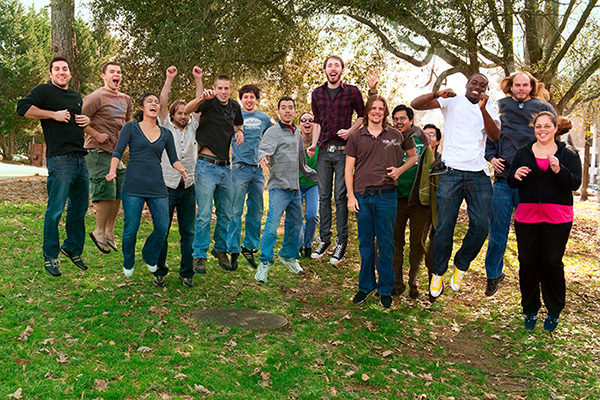
~~ Spring 2010 Class ~~